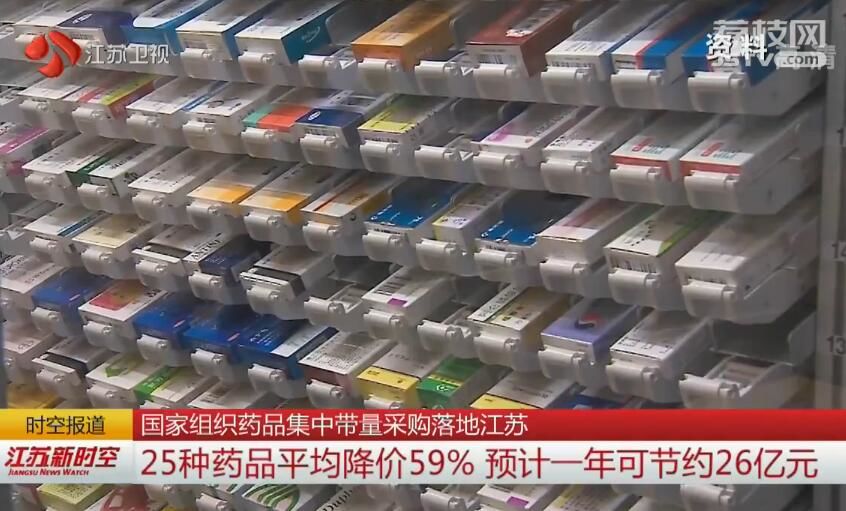East China’s Jiangsu province will join the national trial program on centralized medicine procurement and use, according to a document released by the provincial healthcare security administration and 8 other provincial government departments.
The trial program on centralized medicine procurement and use will be effective in Jiangsu on December 31, the document said.
An average price reduction of 59 percent is expected to be seen in 25 selected medicines, according to the document.
The State Council approved in January this year state-run centralized medicine procurement in 11 pilot cities in an effort to deepen the reform of the medical and health sector and optimize the pricing system of drugs.
The centralized procurement is open to all approved enterprises that can produce drugs on the procurement list in the Chinese mainland.

The policy is aimed at lowering drug costs for patients, reducing transaction costs for enterprises, regulating drug use of institutions, and improving the centralized medicine procurement and pricing system.
In practice, centralized procurement will be about 60 percent to 70 percent of the annual drugs purchased by public hospitals in the pilot regions.
The program, updated from a preview version, came into effect on April 1 in Beijing, Tianjin, Shanghai, Chongqing, Shenyang, Dalian, Xiamen, Guangzhou, Shenzhen, Chengdu and Xi’an where drugs would be selected from generic brands for centralized medicine procurement. The selected drugs must pass the consistency evaluation on quality and effectiveness.
The nationwide application of the program is expected to come up with a national procurement alliance.
In the next phrase, the National Healthcare Security Administration or NHSA will work with other authorities to strengthen the monitoring and supervision in the trial program, safeguard the quality, supply and prioritize use of the selected drugs.
NHSA has also pledged to launch evaluations on the program in a timely manner, improve the policies and systems for centralized procurement, and study the feasibility of expanding the trial.
Clinical effects, adverse reactions, and batch stability of the drugs will be considered, and their consistency will be the main criteria for evaluation, while production capacity and stability of the supplier will also be considered.
(source:ourjiangsu.com)






